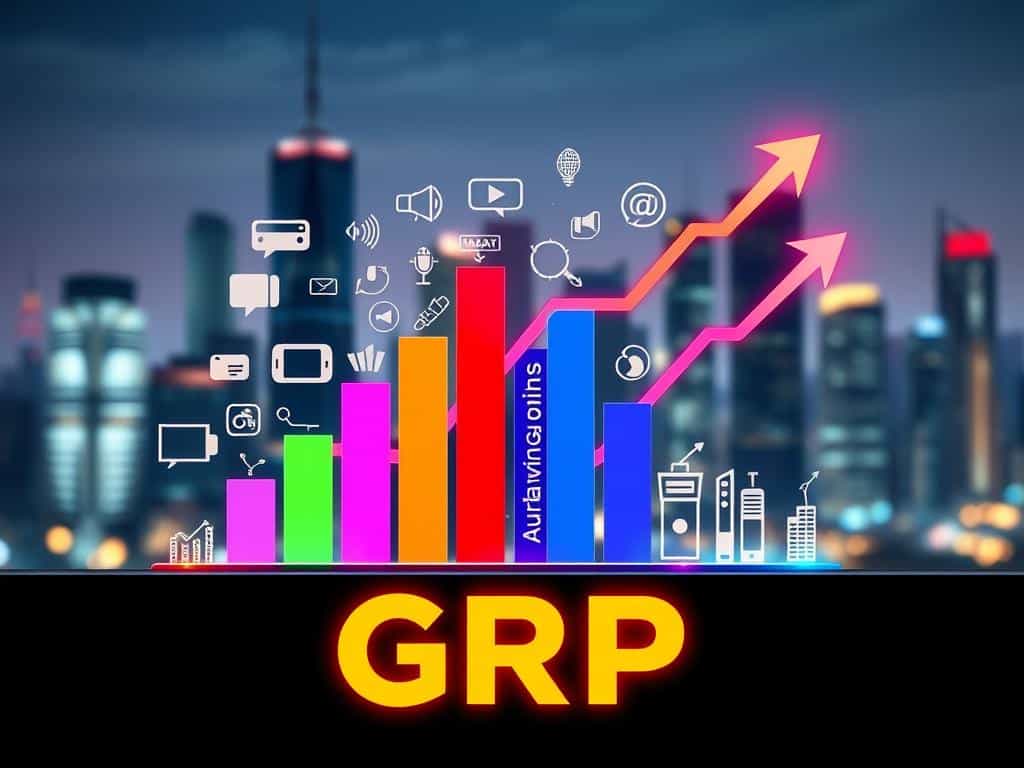Navigating the advertising license process is essential if you’re aiming to establish an outdoor advertising business. While most states do not mandate a specific marketing license, understanding the legal requirements for advertising and obtaining the necessary permits is crucial. The Federal Trade Commission (FTC) ensures that advertisements are truthful and non-deceptive, mandating compliance with these standards to avoid substantial penalties.
Operating without proper registration can lead to fines as steep as $25,000 per day and the revocation of the ability to participate in city contracts. This makes the advertising license acquisition process not only a formality but a necessary step toward protecting your business operations.
Certifications from reputable marketing associationscan further validate your expertise and establish credibility within the industry.
Understanding the Basics of Advertising Licenses
An advertising license serves as a formal permit to conduct advertising campaigns within a specific jurisdiction. Comprehending the legal framework for advertising is crucial for businesses aiming for successful marketing strategies while adhering to local laws and regulations. The advertising industry compliance ensures that ads are responsibly integrated into public spaces, balancing commercial interests with societal norms.

The benefits of obtaining an advertising license are multifaceted. Licensed ads have demonstrated higher user engagement, with a 76% reduction in bounce rates during trial periods. New visitors spent four times longer on websites with regulated ads, while returning visitors spent nine times longer. This remarkable surge in engagement underscores the tangible advertising license benefits for businesses prioritizes compliance within the advertising landscape.
Moreover, adhering to the legal framework for advertising safeguards companies against legal repercussions, fostering trust and credibility with both consumers and regulatory bodies. Statistics indicate that Key Performance Indicators (KPIs) increase between four to six times with licensed content, affirming its robust performance akin to original content across various client networks including DiveMarketplace.
| Engagement KPI | Unlicensed Content | Licensed Content |
|---|---|---|
| Bounce Rate | 88% | 76% |
| New Visitor Duration | 1x | 4x |
| Returning Visitor Duration | 1x | 9x |
| KPI Increase | 1x | 4-6x |
Conclusively, understanding the intricacies of advertising industry compliance and leveraging the advertising license benefits can impart significant advantages to businesses. By navigating the legal framework for advertising, your company can secure its positioning within the competitive market while upholding ethical standards and enhancing audience engagement.
Registration Process for Outdoor Advertising Companies (OACs)
Establishing your business as an Outdoor Advertising Company (OAC) requires thorough preparation and compliance with specific regulations. Here, we provide an in-depth look at the registration process and essential elements.
Essential Documents Required
To initiate the Outdoor advertising registration, you must gather and submit numerous documents. Key OAC documentation includes a detailed inventory of signs, specifying their locations and visibility from arterial highways and public parks. Also required is a Letter of Credit printed on the bank’s letterhead. Compliance with these requirements emphasizes meticulous record-keeping and accountability.
Step-by-Step Registration Guide
Follow this comprehensive OAC registration guide to ensure a smooth process:
- Complete the Outdoor Advertising Sign Permit Application.
- Submit proof of landowner consent for each sign location.
- Provide notarized supplements and lease agreements for pre-existing signs if applicable.
- Include additional documentation such as malfunction contact information and renewable energy resource availability for digital billboard applications.
- Initial and re-sign any changes made to application forms.
- Deliver all materials via specified methods: mail, fax, or email as directed by the Department of Buildings.
Fees and Renewals
The OAC fees are based on the square footage detailed in your application. Payment options include e-checks for electronically submitted applications and Action Requests. Be vigilant with Advertising license renewal deadlines to maintain compliance and avoid penalties. Regular updates and communications from the Department will assist in navigating these requirements.
Additional information and resources, including rule amendments, can be found through the appropriate contacts and online platforms. Securing your place in the Outdoor Advertising Sign Program requires attention to detail and adherence to procedural steps.
| Document | Requirement |
|---|---|
| Outdoor Advertising Sign Permit Application | Mandatory for all new signs |
| Landowner Consent | Written proof required for each sign location |
| Letter of Credit | Printed on bank’s letterhead |
| Notarized Supplements | Needed for existing signs |
| Renewable Energy Resource Availability | Applicable for digital billboards |
Submitting Your Advertising License Application
The license application process for advertising licenses is streamlined to ensure ease of compliance and support lawful advertising. Whether you’re advertising medical services, drugs, or other regulated products, understanding the relevant guidelines and requirements is critical.

The Law on Advertising 2012, alongside Decree 181/2013/ND-CP and Circular 09/2015/TT-BYT, forms the core legal framework guiding the advertising industry. As per these regulations, different types of advertising licenses are mandated based on the product field.
For instance, services like medical exams, drug promotions, and the sale of cosmetics, vaccines, and medical equipment, all necessitate specific advertising licenses. Each category has unique requirements that must be met to secure approval.
Here’s a structured breakdown of the advertising license application process:
- Prepare Necessary Documents: Collect all required documentation, including product details and compliance certificates.
- Submit Advertisement Product Notification Dossier: Provide complete and accurate information to the licensing authority.
- Verification by Licensing Agency: The application is thoroughly reviewed. If additional details are needed, the agency will notify you in writing.
- Receive Certificate of Advertising Content: If your application meets all criteria, certification will be granted within 10 working days.
Here’s a detailed look at the fees and payment options involved in the process:
| Fee Type | Amount | Payment Options |
|---|---|---|
| License Fee | $0.58 per square foot in the inventory | Electronic check, credit card (+2.10% surcharge), debit card (+$3.45 fee) |
| Application Fee | $20 (non-refundable) | Online or in-person |
| Renewal Fee | $1.16 per square foot in the inventory | Electronic check, credit card (+2.10% surcharge), debit card (+$3.45 fee), check, money order, cash |
| Late Renewal Penalty | 1.5% of the license fee for each month overdue | Same as renewal fee options |
| Returned Payment Fee | $20 for insufficient funds | Electronic check, credit card (+2.10% surcharge), debit card (+$3.45 fee), check, money order, cash |
Successfully submitting your advertising license requires attention to detail and adherence to regulatory standards. By following the outlined steps, you ensure compliance and pave the way for legitimate advertising endeavors.
How To Get An Advertising License: Detailed Procedures and Requirements
Securing an advertising license involves navigating various regulations and compliance measures. Understanding these requirements is essential for a smooth application process. These procedures apply across industries, whether for outdoor advertising, real estate, or online promotions.
Common Pitfalls and How to Avoid Them
One major pitfall is the failure to include the broker’s information in real estate ads, a mistake that led to a $5,000 fine for one licensee and their broker. To avoid advertising license mistakes, it’s crucial to understand regulations outlined in Sections 301 through 308 and ensure all required information is present.
Additionally, missing deadlines and incomplete documentation are common licensing pitfalls. The Fair Housing Institute provides essential guidelines, such as words and phrases to avoid in ads to prevent fair housing implications.
- Ensure all required documentation is submitted on time.
- Include mandatory disclosures, especially in real estate advertisements.
- Abide by size and location restrictions for signs as per PennDOT regulations.
- Complete required coursework and education on social media compliance.
Being aware of different regulations in various MLS systems and the need for environmental, health, or special federal permits further helps in avoiding licensing issues.
Additional Resources and Assistance
To provide advertising license help, numerous resources and services are available. The New York State Department of State and the Department of Small Business Services are instrumental in offering licensing assistance resources, guiding you through obtaining necessary permits and understanding complex regulations.
| Resource | Type of Assistance |
|---|---|
| New York State Department of State | Document procurement, regulatory guidance, registration assistance |
| Department of Small Business Services | Understanding complex regulations, successful registration pathways |
| Fair Housing Institute | Guidelines on language and compliance issues |
| PennDOT | Permits and regulations for on-premise and off-premise signs |
Remember, each industry may require specific permits. For example, health permits are needed for food-related businesses, while alcohol sales may require both state and federal approval. Staying informed and utilizing these resources can help you avoid common and costly licensing pitfalls.
Is Becoming an Advertising Model a Requirement for Obtaining an Advertising License?
Becoming an advertising model is not a requirement for obtaining an advertising license, as these paths cater to different professions. However, understanding how to start a career in modeling can be beneficial in grasping the creative side of advertising campaigns and fostering collaboration with models in promotional projects.
Conclusion
In the complex world of advertising, securing an advertising license is more than a mere procedural formality—it’s a testament to your commitment to ethical marketing practices and legal compliance. Navigating the intricate network of federal and state laws, primarily enforced by the Federal Trade Commission (FTC) and other regulatory bodies, is essential for successful advertising licensing. From the FTC Act to state-specific legislations like New York’s General Business Law and California’s Business and Professions Code, each statute aims to ensure that adverts are truthful, non-deceptive, and fair.
The final steps in license acquisition revolve around meticulous preparation and knowledge. Ensure you have all required documentation, adhere strictly to procedural guidelines, and stay updated on the latest legal requirements. Being diligent in these areas not only prevents legal pitfalls but also builds a foundation for trust with your audience. Regulatory bodies such as the US Food and Drug Administration (FDA), Consumer Financial Protection Bureau (CFPB), and Securities Exchange Commission (SEC) oversee specific industry practices, underscoring the fact that proper licensure in advertising varies across different sectors.
Understanding the importance of compliance extends beyond merely avoiding penalties. It includes participating in self-regulatory programs from industry organizations like the National Advertising Division (NAD) and the Better Business Bureau (BBB). These programs, even though voluntary, help foster a credible and trustworthy advertising environment. Non-compliance, however, might not only risk legal scrutiny but also lead to corrective actions, including changes in product names or withdrawal of false advertisements. Therefore, embracing the final steps in license acquisition with a robust compliance strategy makes a significant difference in sustaining ethical marketing practices while achieving success in your advertising endeavors.








